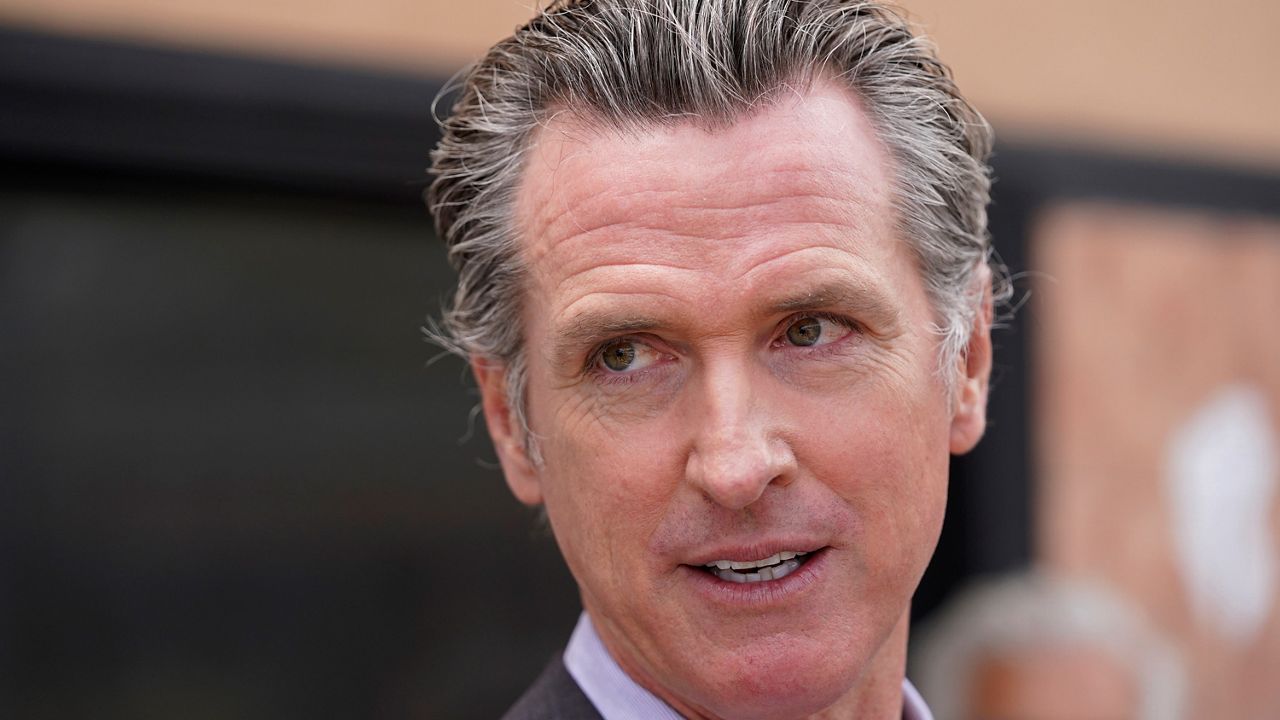SACRAMENTO, Calif. (AP) — Four years ago, California Democrats altered the state’s recall laws in part to slow down the process and try to aid a state senator facing a removal vote over his support for increasing the gas tax.
Now, as Democratic Gov. Gavin Newsom faces a recall of his own, they're trying to change the laws again. This time, though, Democrats want the option to speed things up to take advantage of what they see as favorable conditions for Newsom.
Lawmakers are expected to vote on the changes Monday.
Newsom’s campaign hasn't commented on the proposed altering of the recall timeline. Recent polls show Newsom in a stronger position than at the start of the year when the pandemic was raging and much of the economy was shuttered.
Those who want to speed things up believe the longer the wait until voters cast their ballots, the more risk of problems arising for Newsom. Democrats hold wide majorities in the state Legislature, making it easy for them to change the rules.
Jack Citrin, a political science professor at the University of California, Berkeley, said changing the calendar threatens to reinforce the public's cynicism about politicians doing whatever they can to stay in power.
“They're trying to create a situation that is most favorable for the partisan outcome that they favor," said Citrin, who has studied trust in government and California’s initiative process.
It's common for lawmakers in states that allow recalls to fiddle with election laws, but it usually happens after the contest is done, not before or during it, said Joshua Spivak, a recall elections expert. And efforts to manipulate election timing don't always work, he noted, pointing to California state Sen. Josh Newman, who lost his 2018 recall election despite Democrats' rule changes.
“That really suggested maybe we don’t know what we’re doing. You’re playing with fire by doing that,” said Spivak, who is a senior fellow at the Hugh L. Carey Institute for Government Reform at Wagner College and runs the Recall Elections Blog.
He speculated the change could backfire because an earlier election gives Democrats less time to motivate their voters. Republicans were behind the recall effort and gathered more than 1.7 million signatures. They say their voters are energized.
“Democrats’ rule changes failed to save Josh Newman from getting recalled four years ago, and voters aren’t going to fall for their trickery now either as they try and change the rules in the hopes of saving Gavin Newsom," the California Republican Party wrote in a news release earlier this month.
The proposal up for debate Monday rolls back some of the changes made to help Newman.
Back in 2017, Republicans targeted the Orange County lawmaker over his vote to increase the state's gas tax because they thought he'd be the easiest to unseat. Democrats, meanwhile, said Republicans were deceiving voters by telling them the petition was about the gas tax, not recalling a senator.
That prompted Democrats to add steps to the recall process: Voters who sign recall petitions are given 30 business days to remove their signatures, the state Department of Finance must conduct a cost estimate, and the Joint Legislative Budget Committee has 30 days to review that estimate.
All the steps were designed in part to push back Newman's election date to coincide with the 2018 primary, when Democrats thought higher turnout would translate into a win.
They were wrong. Newman lost the seat, though he won it back in the 2020 regular election.
Now looking to speed the process, Democrats' proposal would essentially bypass the legislative review process so long as lawmakers set aside money for counties to pay for the cost of the election. The state Department of Finance already sought a cost estimate from counties and lawmakers plan to approve $215 million to cover the local expense.
With no legislative review, Democratic Lt. Gov. Eleni Kounalakis, a Newsom supporter, will be able to set an election date sooner. County clerks have said they need until at least Sept. 14 to be ready.
Nathan Click, a spokesman for Newsom's campaign, didn't respond to multiple requests for comment about whether the campaign had communicated with Democratic lawmakers about the recall timing. Top state legislators working on the issue, including Senate Budget Committee Chairwoman Nancy Skinner, declined to comment on the legislation.
Katie Talbot, a spokesman for Speaker Anthony Rendon, said lawmakers don't need extra time to review the election costs because they've already decided to reimburse counties. She acknowledged it could allow for an earlier recall election.
Republicans, meanwhile, are sure to raise opposition during Monday's debate. State Assemblyman Kevin Kiley, who is considering running in the recall, accused Democrats of trying to “ram through a new law."



